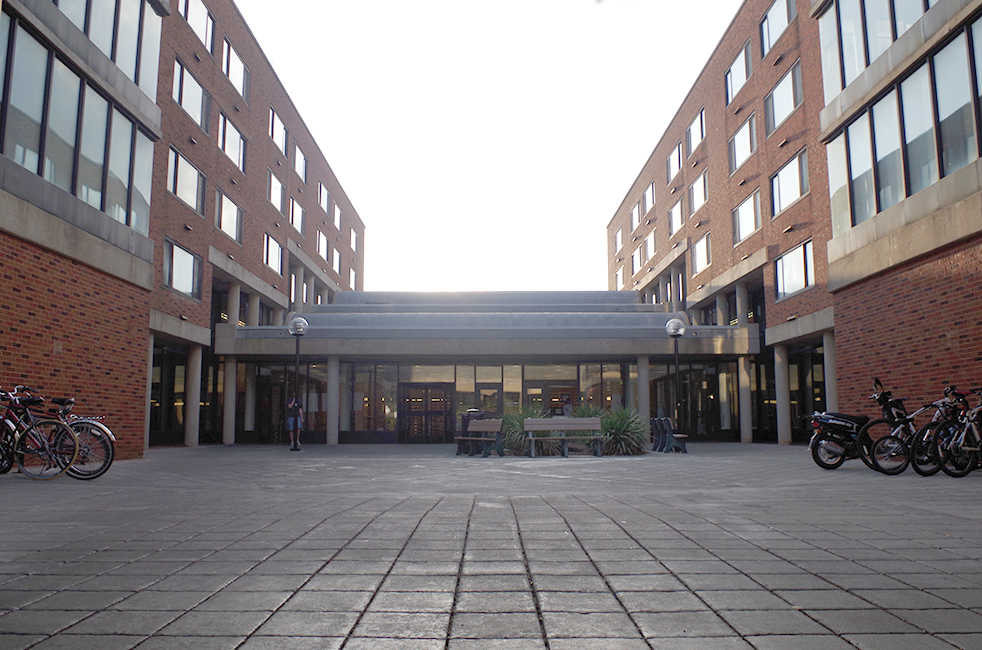Reports alleging numerous false fire alarms in the Woodruff Residence Hall have surfaced in past weeks, suggesting a chronic deficiency in the building’s
alarm system.
Woodruff was subject to fire alarm inspections in 2013, 2014 and 2015 by two third-party groups, AFA Protective Systems, Inc (in 2013 and 2014) and Convergint Technologies (in 2015). The Technique was able to obtain reports produced by those investigations through an open records request.
The 2013 report showed that six smoke detectors and four sound devices also did not pass the testing process. In 2014, the number of smoke detectors failing was halved while the sound devices that did not pass fell slightly to three. However, it should be noted that the sound device in the third floor lounge of the south building failed both the 2013 and 2014 tests, meaning that they remained unfixed for at least one year.
While only a single sound device failed testing in 2015, there was also only one sound device tested that year. In addition, two batteries connected to the “control” portion of the system failed as well. The number of smoke detectors that failed to pass the inspection rose from 3 in 2014 to 12. The detector in room 501 of the south Woodruff building — which had not passed either the 2013 or the 2014 inspection — failed its test in 2015, meaning it had gone unfixed for two years at the very least. Also, 8 of the 12 elevator recall smoke detectors failed their inspections.
Additionally, in the 2015 report is an inventory report of all the relevant devices and items. Listed alongside each is the install date, and, according to the report, every device was installed on June 18, 2015. Cross referencing this information with a list of Life and Safety department improvements made at Tech from January 2013 to September 2016 (obtained through an open records request) presents a dilemma; no changes or improvements were logged during the entire summer of 2015.
Statements from the 2013 and 2014 reports that field devices — fire alarms and detectors — in the Woodruff complex required upgrades went largely unheeded. Records of Life and Safety department improvements made at Tech from January 2013 to September 2016 were obtained by the Technique. Among the changes made to Woodruff were repairs to the main sprinkler line in summer 2014 and power supply replacement as well as basement fire protection improvements in 2015.
The upgrades made in 2016 involved a replacement emergency generator as well as a program module for flow and tamper of sprinklers, the latter of which ostensibly made in response to findings by the 2013 and 2014 reports that not all control valves were locked, sealed and/or equipped with tamper switches.
Records indicate that voluntary shutdowns of portions of Woodruff’s alarm and detection systems have occurred in the past, though largely in relation to construction projects. Work in Summer 2013, which consisted largely of painting and ventilation maintenance, triggered the alarm system a total of nine times in the course of 30 days. While no definite cause was determined for any of the nine incidents, Housing officials and contractors suggested that dust from the various projects was clogging the sensors. They were able to reduce, but not eradicate, further alarms by covering the sensors with plastic.
Continuing alarm issues which disturbed the operation of Woodruff Dining Hall led Fire Marshal Larry Labbe to approve a shutdown of the entire smoke alarm system covering both residence areas and the dining hall. Manual pull alarms were still operational and could have triggered audio and visual alarms in case of an emergency. Per fire code a “Fire Watch Procedure” was initiated in which logged patrols are conducted to catch any fires that might occur undetected.
A similar procedure occurred in September 2013, in which a general alarm sounded for unknown reasons, and the control panel for the system was able to be silenced but not immediately reset. The responding GTPD officer instituted a precautionary fire watch, which on review by Fire Marshal Labbe was determined to be unnecessary. The procedure preferred by residence life appears to be for the alarm to be immediately silent and a reset request sent to residence life, at which point housing staff specializing in fire alarm technology can complete a full reset of the system.
In Woodruff, students’ behavior has responsively drifted towards apathy.
“Yeah, I ignored a few [alarms] because they were frequent,” said a former Woodruff resident who spoke on condition of anonymity. “I would either stay in bed or go in the bathroom until it [stopped]. They would occur three to four times a week, and often nights before a test. [Resident Advisors] would just be hanging outside. They never came and knocked on my door or anything. Sometimes I wouldn’t even see them.”
